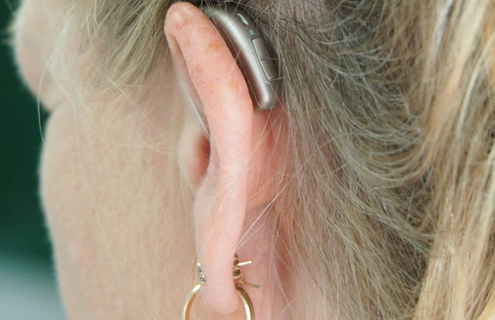
According to the National Institute on Deafness and Other Communication Disorders, one in three people age 65 to 75 have hearing loss.
Hearing loss occurs gradually for many of us as we grow older. It is, in fact, one of the most common conditions affecting adults as we age.
According to American Speech-Language-Hearing Association, roughly 9% of adults age 35 to 64 have permanent hearing loss in both ears. That number rises to 35% for people ages 65 to 74, and 73% for adults 75 and older.
Related Article: Meet a Speech-Language Pathologist
“Patients with hearing loss may face challenges when communicating with conversation partners, such as families or their medical team. It can impact relationships, confidence, and even safety,” said Alexis Bryan, MS, Speech-Language Pathologist (SLP) at APD. “SLPs help facilitate communication strategies to alleviate some of these burdens and barriers to communication.”
Bryan offers these tips for communicating with those who have hearing impairments:
- Encourage the use of hearing aids
- Assist with hearing aid set up, as needed
- Eliminate background noise
- Speak clearly
- Face the hearing-impaired person when speaking to them
- Maintain eye contact
- Be patient
“Speech pathologists can assist those who have hearing impairments by offering strategies focused on improving communication, such as lip reading and providing hearing aid instruction interventions,” Bryan said.